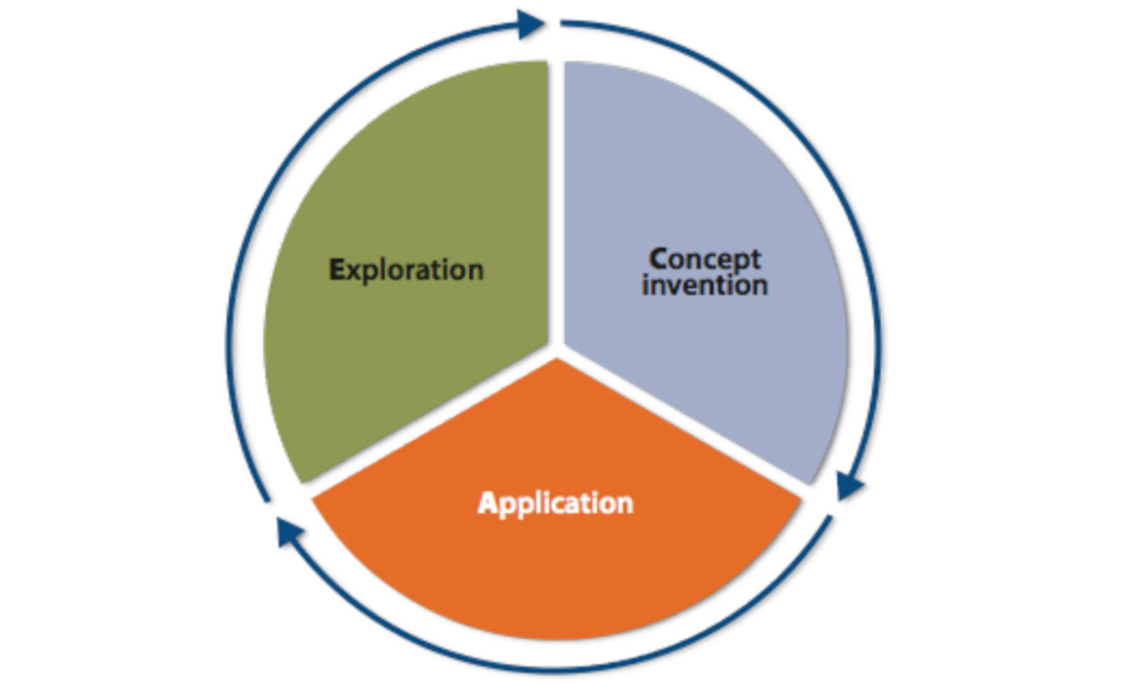The Learning Cycle is what is used as the basis for writing a POGIL activity. Through a carefully crafted guided inquiry approach, the exploration of a model occurs through direct questioning. Concept invention then takes place as students begin to see patterns and relationships in the data and terms are introduced. Finally, questions are posed that ask students to address the application of a concept to new situations.

Process Skills Definitions
One of the principles that characterizes POGIL as a teaching strategy and philosophy is the explicit emphasis on the development of process skills as an important component of the student learning process. The process skills that we refer to here include both cognitive and affective processes that students use to acquire, interpret, and apply knowledge. At its outset, The POGIL Project identified seven process skills as those that would be the focus of development in a POGIL classroom

Free, downloadable role cards for Manager, Presenter, Recorder, and Reflector are available HERE.
To purchase sets of laminated cards role cards, please CLICK HERE

ELIPSS
Enhancing Learning by Improving Process Skills in STEM is an NSF-funded project that focuses on the identification, development, and assessment of process skills (also known as professional skills, practical skills, workplace skills, transferable skills, or soft skills) in active learning, undergraduate STEM classrooms. The ELIPSS website has a set of analytic and feedback rubrics available to instructors who want to do assessment on process skills and student behaviors.
Related Links
There are many organizations that do work that is compatible with the POGIL pedagogy. Click below to see a list of other websites and groups.